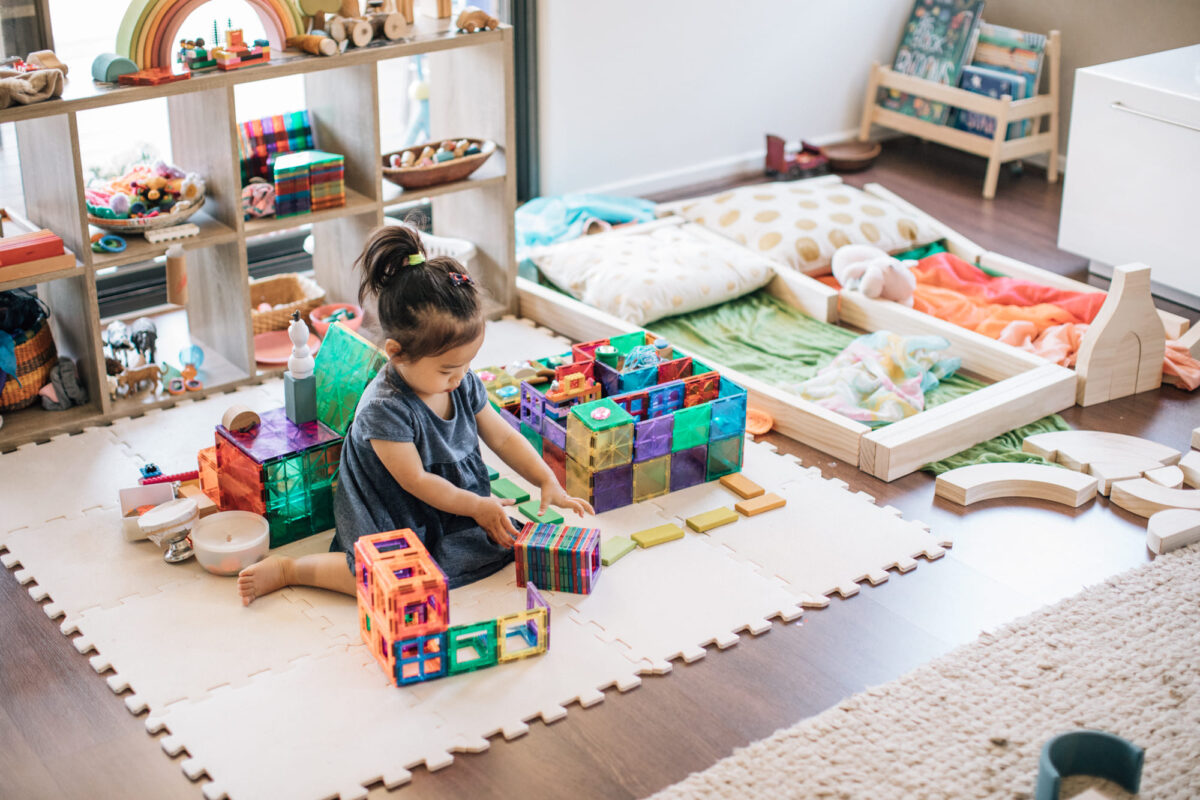Growing up in Singapore, play was seen as a reward, reserved for only after we completed our important work and learning for the day. I remember those days in primary school where on top of schoolwork, I had a list of extra assessment bookwork that my mum made me complete every single day to complement the formal learning I did in school. It was the norm for the culture I grew up in. Almost all my peers had similar stories growing up; as strange as it may sound, our parents thought withholding play for a later time was the best thing our parents could have done for us.
Table of Contents
- The Traditional Learning Paradigm
- Discovering Play-based Learning
- The Value of Play
- More than “Just Play”
- My Key Takeaway
The Traditional Learning Paradigm
I have to say I suffered no ill effects growing up in this environment and I would even say I thrived. I was great at memorizing facts and regurgitating things for the purpose of exams and I’m where I am today because of it. But deep down, I always knew that there had to be a better way to learn.
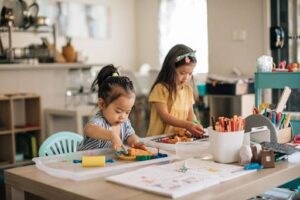
In my early years, learning was prescribed for me and I had no say about what was considered important to know. I questioned the value of a lot of the things I was made to learn. I wasn’t interested in half the things I learnt and I can hardly remember any of it now.
The process of learning was a way to get to our destination, an end goal – the goal being to get good grades that would enable me to get into a good school, a good university and ultimately to get a good job that would set me up for success in life.
Discovering Play-Based Learning
But ever since I learnt about play-based learning whilst training to be an early childhood teacher, and seen the value of open-ended play, that play IS learning, and that the process of playing and learning IS the destination, I cannot imagine a childhood otherwise for my children.
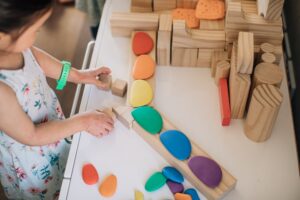
As parents it is only natural to want the very best for our children, and to provide them with every opportunity to thrive. We envision a future where they excel academically, where doors open for them effortlessly, and where they have an advantage in this competitive world.
We may wonder how play alone in the early years is enough but the truth is… Play is not isolated from learning: it intertwines seamlessly with it.
The Value of Play
Play is the vehicle through which children absorb knowledge organically, effortlessly blending cognitive, physical, emotional and social development. Play cultivates creativity, critical thinking and a love for learning. It fuels their curiosity, ignites their imaginations, and fosters a thirst for knowledge that will propel them forward.
Cognitive Development
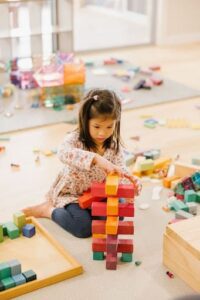
Through play, children develop essential cognitive skills such as problem-solving, memory and decision-making. For instance, when children engage in block play, they learn about spatial relationships, balance, cause and effect and even develop number sense. These activities also enhance their ability to concentrate and focus on tasks, skills that are critical for academic success.
Physical Development
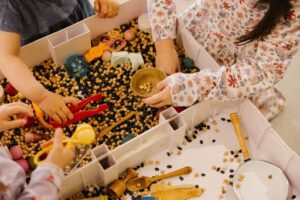
Play is crucial for physical development as well. Running, jumping and climbing help develop gross motor skills, while drawing, cutting and manipulating small objects refine fine-motor skills. Physical play also promotes overall health and well-being, encouraging children to stay active and develop a love for physical activity.
Emotional and Social Development
Play allows children to express their emotions, develop empathy and build social skills. Through role-playing and collaborative games, children learn to understand others’ perspectives, negotiate, and resolve conflicts. These experiences are foundational for building healthy relationships and emotional intelligence. At the same time, it will enable them to develop a strong sense of self and an understanding of their unique abilities and passions.
More Than “Just Play”
Play is not just frivolous, aimless fun. It is something incredibly powerful that lays the foundation for their entire educational journey and beyond. Through play, they learn to explore and make sense of the world around them. They develop problem-solving skills, experiment, test boundaries, and learn from their mistakes. Play fosters resilience, adaptability, and a tenacious spirit that will carry them through the ups and downs of life.
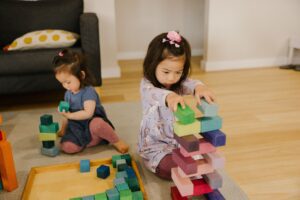
By allowing children the freedom to play, we are opening doors to a world of infinite possibilities. We embrace the idea that learning goes beyond textbooks and structured lessons. We embrace the idea that by giving our children the time and space to play, we are giving them the greatest gift – the opportunity to develop into well-rounded individuals with a genuine love for learning.
Key Takeaway
By understanding and valuing the role of play in learning, we can nurture our children’s development in a holistic and meaningful way, ensuring that they grow into curious, resilient, and self-motivated individuals. Embracing play as a key component of early childhood education empowers our children to become lifelong learners, equipped with the skills and mindset needed to thrive in an ever-changing world.
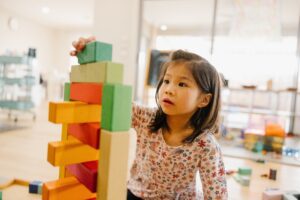
Incorporating play into daily routines and learning experiences doesn’t just prepare children for academic success; it prepares them for life. Let’s cherish these precious early years and give our children the gift of play, knowing that it is one of the most powerful tools we have to support their growth and development.
22
Aug
